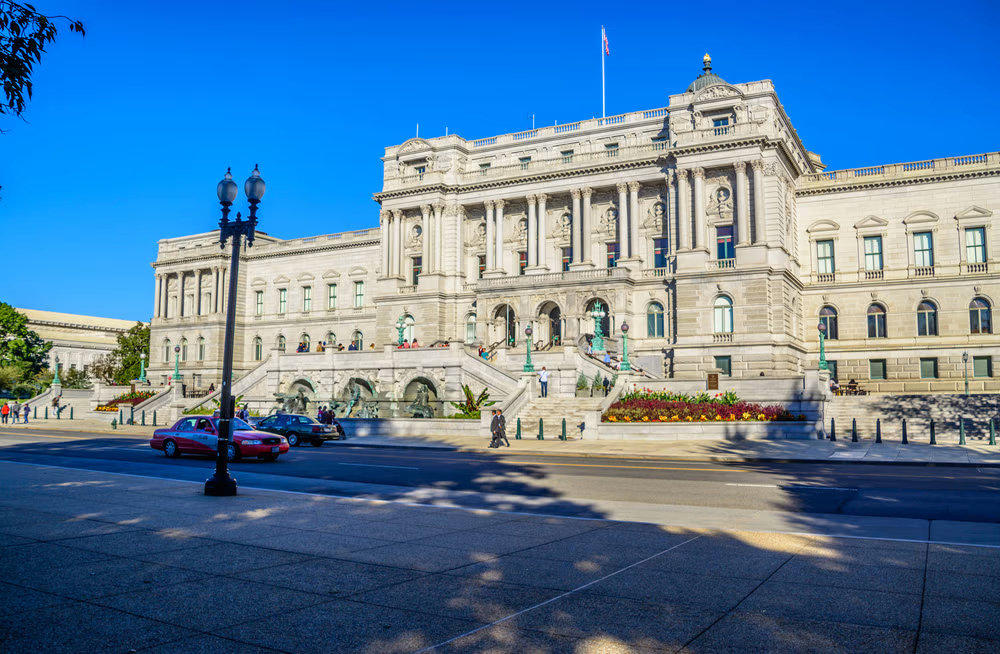Valancourt Books v. Garland
Zvi Rosen

On Oct 13, 2022, the DC Circuit Court of Appeals heard argument in a case about whether a publisher is required to deposit copies of books with the Library of Congress, even if they don’t apply for copyright registration. This case might seem esoteric, but it implicates fundamental questions of the power of Congress to regulate speech, and whether such mandatory deposit of valuable books constitutes a taking of private property without compensation.
Valancourt Books is a small business in Virginia, run out of a home, which specializes in “new editions of neglected classics, with an emphasis on horror/supernatural and LGBT literature,” according to their website. The content of these books is largely preexisting, but they may include original material such as notes and introductions. Given this, Valancourt does not bother to register its books for copyright, and the Library of Congress already has copies of the books it publishes in original editions. The books Valancourt publishes are printed on demand—there are no print runs, and Valancourt holds no inventory.
Nonetheless, in 2018, the U.S. Copyright Office, an arm of the Library of Congress, demanded that Valancourt submit two copies of the “best edition” of nearly every book it has published, or face fines which could total over $80,000. This demand was made under Section 407 of Title 17 of the U.S. Code—a provision within the copyright law but not itself related to copyright. Under Section 407 two copies of all works published in the United States must be sent to the Library of Congress. This requirement is on the holder of the copyright in that work, but as copyright subsists at the moment of the creation of a work of even the slightest creativity, it applies to essentially all works. The very next section of the copyright law, Section 408, provides for copyright registration and deposit with that registration, but that is a separate provision not at issue here. In response, Valancourt, represented by the Institute for Justice, filed suit arguing that the requirement constitutes a taking of their property in the literal sense, and that Section 407 violates the First Amendment by effectively putting a tax on publishing.
The case remained sub judice at the U.S. District Court in DC for almost two years after summary judgment was fully briefed, and in July of 2021, the court surprisingly ruled in favor of the government, holding that Section 407 is associated with provision of the government benefit of copyright, even though Section 407 says, in black and white, that it is not a condition of copyright. Valancourt then appealed to the DC Circuit.
At argument, the discussion focused on whether Valancourt could abandon its copyright and thus not be bound by Section 407. Valancourt, as well as an amicus brief from myself and Brian Frye, argued that abandonment is not mentioned in the copyright law; the only known procedure is recordation of a document with the Copyright Office for over $100 per work, and the Copyright Office does not guarantee that it is legally effective. The American Association of Publishers, in a brief written by former Copyright Office General Counsel Jacqueline Charlesworth, further pointed out that abandonment of copyright is an equitable infringement defense, not a true abandonment in the property sense.
In response to this, perhaps sensing the weakness of its position, the government took the seemingly unrehearsed litigation position that a simple e-mail to the Copyright Office saying they were abandoning their copyright would suffice. When asked how that would provide any record of abandonment, given that the only way for the public to get this email would be through a FOIA request, the government replied that the abandonment could be for purposes of section 407 only—a far cry from the threat of massive fines in 2018, and the first time that position had ever been represented to Valancourt or (to my knowledge) anyone else. This doesn’t seem terribly different from the sort of permissive deposit—where the Library of Congress asks rather than demands copies of creative works—which would amount to a victory for Valancourt.

Topic
Sponsor
Federalist Society’s Intellectual Property Practice Group
The Federalist Society and Regulatory Transparency Project take no position on particular legal or public policy matters. All expressions of opinion are those of the author(s). To join the debate, please email us at [email protected].




